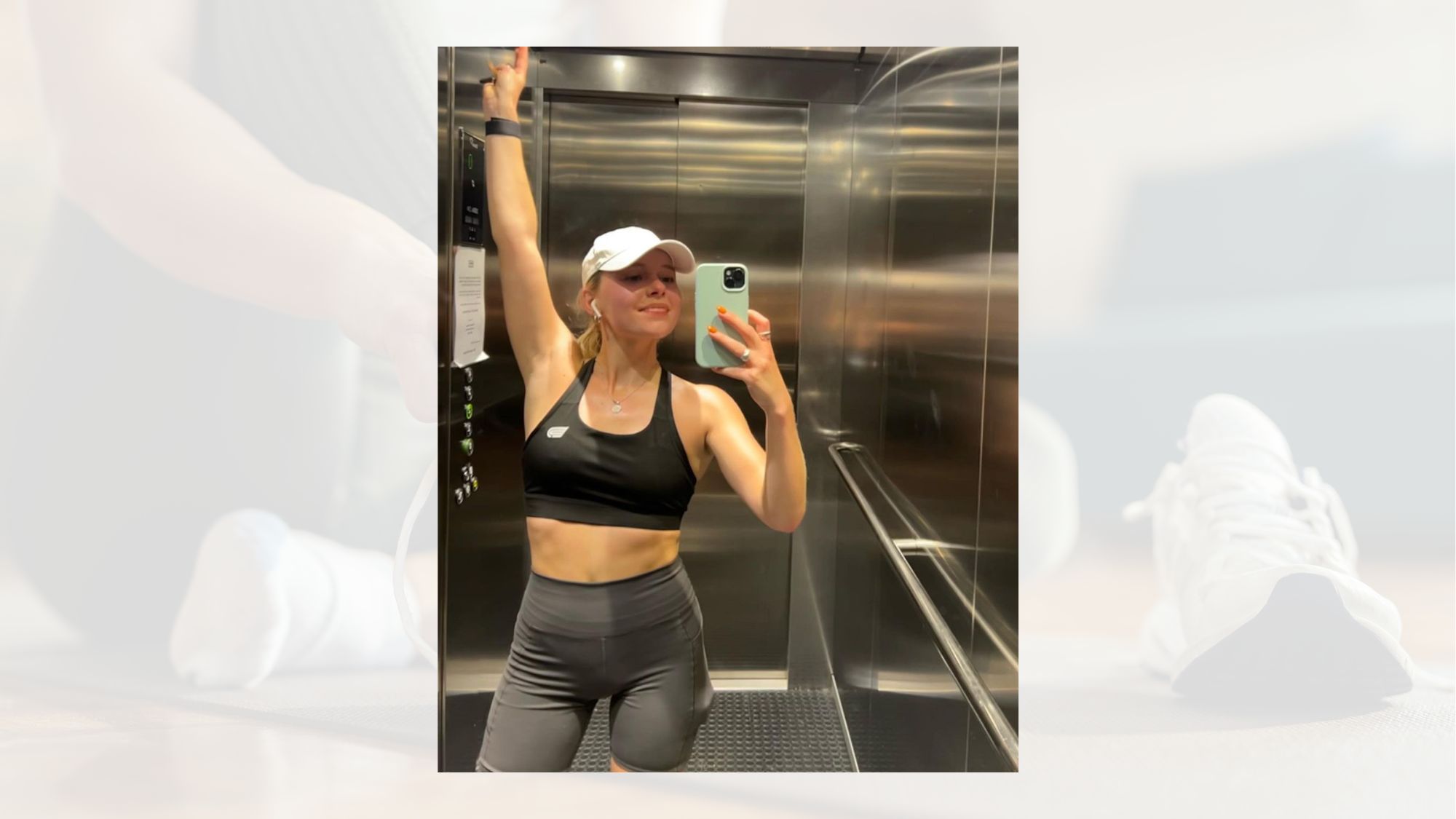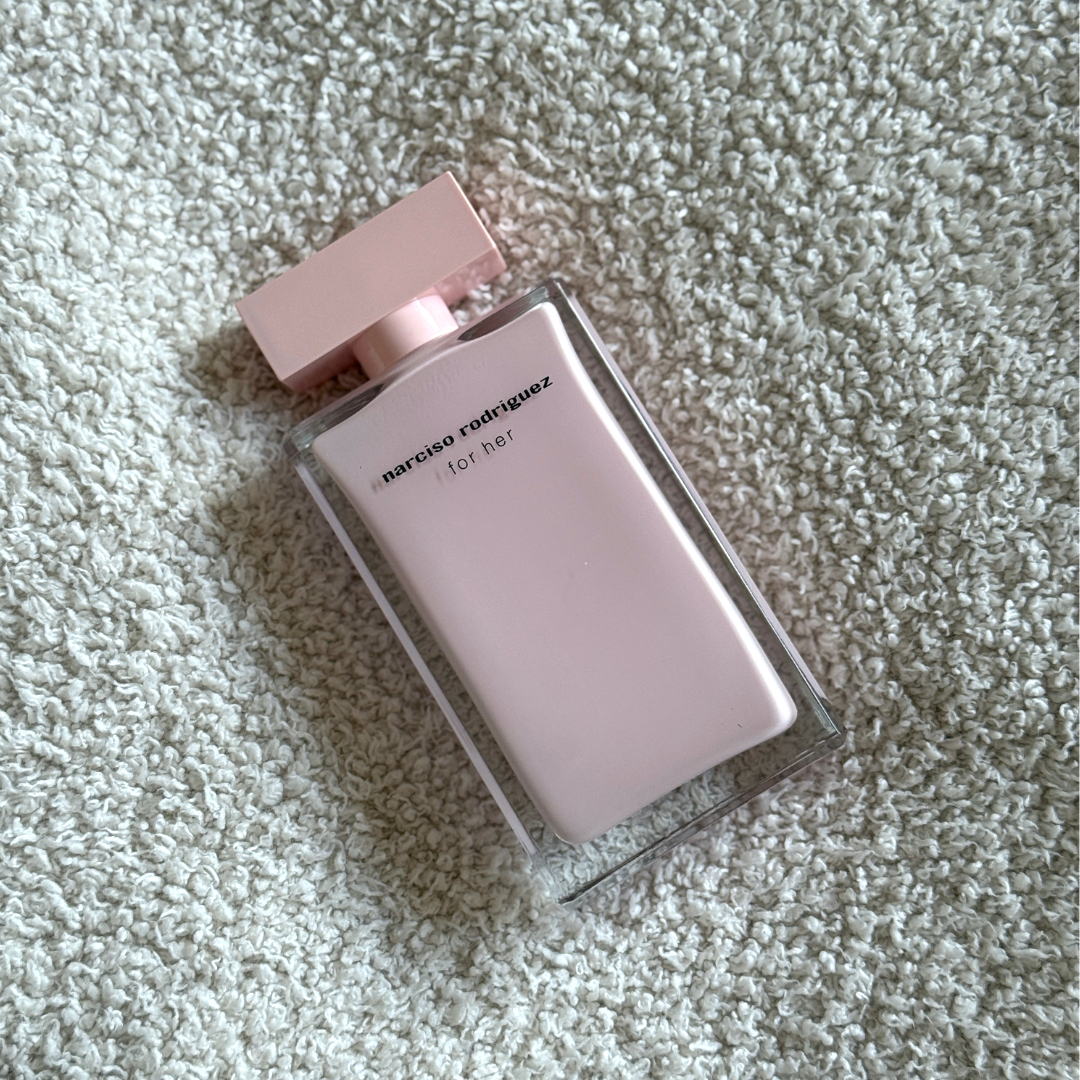As a Health Writer starting a new fitness routine, these are the mistakes I’ll be avoiding
Including under-fuelling and over-training.


Hands up if you ever feel you've made beginner gym mistakes? Don't worry, you're far from alone - my hand is raised, too.
While I'm now a qualified personal trainer who writes about health and fitness for a living, when I first started working out back in 2015, I wasn't so clued up. A bit like most gym beginners, I made a lot of it up as I went along.
Only when my progress was stinted did I realise how key it is to avoid certain workout mistakes - so I certainly haven't forgotten the errors I first made all those years ago.
I'm far from being the only person who struggled at the start of their fitness journey. Studies show that many beginners end up injured, with one paper from the British Medical Journal finding that injury risk is higher in novice athletes. Not to mention the fact stats suggest 50% of new sign ups at the gym quit within six months.
Right now, it feels even more fitting to reflect on what hindered my progress as I take on a new fitness challenge. That's right - come March, I'll be running the London Landmarks Half Marathon to raise money for charity. Spoiler alert: I don't consider myself to be a runner, so I'm feeling a mixture of scared and embarrassed about being a newbie again for the first time in a long time.
But that doesn't have to be the case. By avoiding simple mistakes, including over-training and under-fuelling, you can make your fitness journey much more simple, as I'm intending to do with my new routine. Keep scrolling as I run through the beginner gym mistakes I learnt the hard way first time round, plus what I'll be doing differently this time. Don't miss our guides to the best time to exercise, how to prevent injury, and what to eat after a workout, while you're here.
4 beginner gym mistakes to avoid that I once made myself
1. Under-fuelling
I'm going to hazard a guess and say that most people who start exercising have an aesthetic goal of some sort.
Marie Claire Newsletter
Celebrity news, beauty, fashion advice, and fascinating features, delivered straight to your inbox!
I was the same - that said, the more working out has become a part of who I am and my everyday, the more I feel the need to educate people on just how good exercise is for both body and mind. You are so much more than your body and moving for physical changes alone is doing a disservice to the incredible things you can do for your health, mind and mood.
However, I'll admit, I've been there myself. When I started my fitness journey the first time round, I was a bit motivated by changing my body to look like the fit-fluencers I kept seeing on my Instagram feed.
The biggest mistake was taking nutrition advice from personal trainers, who may be qualified to advise on which workout moves to do, but certainly weren't in a position to tell me how many calories or grams of protein to be aiming for. As a result of taking expert advice from people who weren't actually experts, I was totally under-fuelling for the training I was doing.
Let me explain: to build muscle, you need to be in a calorie surplus, meaning eating more than you burn so your body has the ingredients to build more tissue. But, as a woman, the only nutrition advice I saw anywhere was that a "better" body = less food.
Cutting calories didn't only mean that I wasn't building the muscle I tried so hard to create in the gym. It also meant I became tired, moody and generally less fit than I likely was before exercise. I know - what a waste.
So here's what I'm doing this time round. I'm eating a lot of food, especially directly around my runs, to ensure I have the energy to push myself hard and recover harder. FYI, the NHS advises aiming for around 2000 calories a day, with a balanced split of all three macronutrients - that's protein, fat and carbs, FYI.
While everyone's diet is different and you shouldn't base what you eat on what works for me, a typical running day might include:
- Pre-run: Porridge and fruit or toast and peanut butter before heading out
- Post-run: A banana protein smoothie.
I'll always make sure to fuel with a nutrient-dense lunch and dinner, too.
I'm noticing the difference, too: I feel much more energised when I fuel properly and can hit my sessions head-on, too.
2. Training too regularly
In 2015, all the fitness content on the 'Gram was bodybuilding-style workout splits.
The people I followed had a week of exercise that looked something like this:
- Leg day
- Shoulder day
- Glute day
- Chest and triceps day
- (Another) Leg day
- Back and bicep day
- Rest
Yep, that's six whole workouts a week, with just one day of rest. So, naively, that's what I started doing as a beginner, too. Never mind that the research says lifting twice a week can be just as effective as exercising any more than that, we're often led to believe that we should be aiming for more workouts vs rest days.
So, why is this incorrect, and why does doing too much too soon matter, I hear you ask? Well, simply put, because you're exhausting one of your main progress options. Ideally, you should do the minimum you need to build our fitness, so when you plateau there are loads of ways to increase the stimulus. If you start with five or six days a week of exercise, you don't have much room for increasing your workout frequency when your progress inevitably stalls.
"Exercise frequency is really important - firstly, you don't want to be shaking up your lifestyle too much that you start to resent your workout routine, but starting with five to six days a week as a total beginner can also lead to injury and over training," adds personal trainer Dottie Fildes.
How am I handling that this time around? I'm following the bare minimum policy and running a maximum of twice a week. Of course, I'm balancing my running with a slightly tapered version of my usual strength training routine, so in total I'm exercising four or five days a week. But I'm doing as little of my new sport as I can while I build up my tolerance for it.
A post shared by Chloe Gray (@graychlo)
A photo posted by on
3. Not tracking my progress
There are lots of ways to track your progress depending on your goals. Maybe it's how easily you can lift your children up or go up the stairs without feeling out of breath, or perhaps it's how confident you feel when you look in the mirror at your reflection.
When I talk about tracking progress, I mean the very tangible numbers that exist in your workout: how much weight you lifted, how many reps you did, or how fast you ran.
I didn't formally track my progress in the gym when I started exercising many years ago. Of course, I held numbers in my head of the weights I thought I'd managed to lift in my last session, but there was no formal record of it. I wish there had been, as looking back at how far you come is really motivating. It also means you can't cheat your way out of adding the extra 0.5kg when you can see that it's clearly time for you to go up a weight.
This time, I'm logging every run I do (even the bad ones). I track my runs on Strava,, which team MC UK listed as one of the best fitness apps and best running apps, too. And for good reason: it offers an excess of information about how you moved, but I only try to take notice of the overall distance and time.
I find watching my time and distance improve week on week both rewarding and motivating. That said, if you're someone who can become obsessive about numbers or tracking, mindful movement - that is, running without tracking - might be more beneficial for you. After all, movement is meant to be about enjoyment, not punishment.
4. Progressing too fast
When I first stepped into a gym, I wanted to do all the most fun exercises. Think squatting with a heavy barbell and doing supersets to burn my muscles - because, of course, complicated moves are far more exciting than boring old reps, resting and repeating.
Spoiler alert: the latter are what will actually improve your fitness levels over time, as is consistency and sticking to a routine that allows you to apply progressive overload over time.
Make sure, before you try to lift heavy, do complex exercises, or jump into any complicated workouts, to perfect your form and build a foundation of strength.
"If you throw yourself into high intensity workouts, lifting heavier loads than what your body can handle or doing exercises that you aren't sure of, it puts your body under unnecessary strain," explains Fildes. "That leads to a much higher risk of injury and will make a dent in any progress that you've made so far. Incremental improvements are definitely the thing to do to stay safe and keep progressing."
With my running, I'm taking things slowly. Yep, I may have been running consistently for well over two months but I've never run more than 8K. I've never gone super fast or pushed myself into trying fancy interval training or super long distances. It might sound boring to take things at this slower pace, but I'm still seeing progress and enjoying my runs injury free.
While it's totally normally to make a mistake here and there - we're only human, after all - if you take my advice, rest assured you'll reap the fitness rewards. I learnt the hard way, so you don't have to. Thank me later.
How do I build confidence as a new exerciser?
Disclaimer: after eight years training, I am confident in the gym but - as I said before - running is scary to me. So those pre-workout nerves and exercise anticipation are familiar feelings. Nonetheless, I asked Fildes her top tips for those who are lacking confidence in their new workout routine.
"I firmly believe in buddy systems," she says. "Find yourself a gym buddy, go with someone who is a little bit more experienced or who can give you a boost of confidence. Don't have a friend willing to kickstart their fitness at the same time? Most gyms also have fitness instructors available to ask questions to - utilise their expertise or join group classes where instructors are happy to help and there's a great community feel. Social media can be useful but be careful about where you're sourcing your information from."
I have to say - hard agree. A big mistake I made early doors was trying to do everything myself and not having someone hold me accountable for when I was doing too much, not fuelling enough or being silly with my form. Now, I'm doing at least one run a week with my housemates and it's given me such a surge of confidence and accountability.

Chloe Gray is a freelance journalist who writes and talks about health, fitness, and wellbeing through a feminist lens. She was part of the launch team for Stylist magazine's fitness brand, Strong Women, and has written for i news, Women's Health, Red magazine, Good Housekeeping, Refinery29, and more. She's all about building mental and physical strength, eating delicious food that fuels you well, and making the fitness industry more accessible and enjoyable. She's also a qualified fitness trainer and research nerd, so you can be sure everything you read is backed by proper science.
-
 Anatomy Of A Wardrobe: TV presenter AJ Odudu is carving out her own lane, one show-stopping look at a time
Anatomy Of A Wardrobe: TV presenter AJ Odudu is carving out her own lane, one show-stopping look at a timeWatch as we take an exclusive look inside AJ's wardrobe
By Lily Russo-Bah
-
 This perfume has been an icon for over 20 years, and for good reason—it’s soft, elegant, and oh so feminine
This perfume has been an icon for over 20 years, and for good reason—it’s soft, elegant, and oh so feminineFeminine but not *too* sweet
By Lucy Abbersteen
-
 Got marathon fever? Trust us: these 12 running accessories will make any distance more manageable
Got marathon fever? Trust us: these 12 running accessories will make any distance more manageableOnce you try these, you won't look back.
By Amelia Yeomans